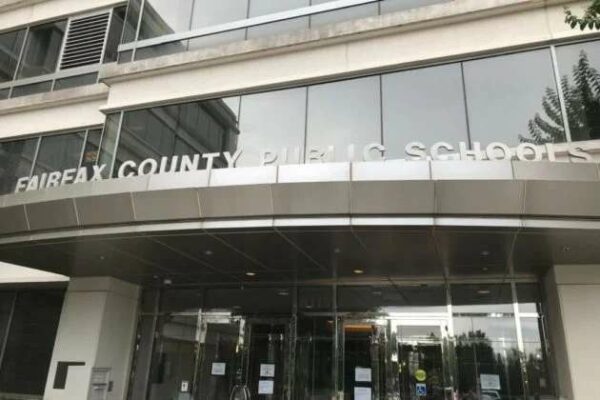Fairfax County Public Schools could require parental notifications for class materials deemed sexually explicit, but in a deviation from the state, the proposed policy directly addresses concerns about censorship, specifically for LGBTQ-related content.
Introduced at the Fairfax County School Board meeting last night, the policy requires teachers to maintain lists of books, videos, and other instructional materials with “sexually explicit content.” Schools must notify parents at least 30 days before the materials are used and provide alternatives if sought by a parent or student.
“Schools shall defer to parents to determine whether the use of an instructional material with sexually explicit content is appropriate for their child,” the policy states.
As noted by staff, FCPS already has a policy and regulations governing selections of print and electronic materials, including guidance for notifying parents and fulfilling requests for access to the materials or alternatives.
The draft policy generally incorporates a model developed by the Virginia Department of Education, as dictated by Senate Bill 656, which requires school boards to adopt rules specifically for sexually explicit content by Jan. 1, 2023. The bill was signed into law by Gov. Glenn Youngkin on April 6.
However, FCPS has added one clause stating that:
This policy shall not be construed to require or provide for (1) the censoring of books in public elementary and secondary schools, or (2) the designation of instructional material as sexually explicit based solely upon the sexual orientation of the characters contained therein.
The school system told FFXnow it has no comment on the proposal “at this stage,” but the clause seems intended to quell fears that the new requirements could be used to limit access to materials that feature or deal with issues related to LGBTQ people.
Unveiled in early August, the VDOE model policy defines “sexually explicit content” in accordance with the state code:
(i) any description of or (ii) any picture, photograph, drawing, motion picture film, digital image or similar visual representation depicting sexual bestiality, a lewd exhibition of nudity, as nudity is defined in § 18.2-390, sexual excitement, sexual conduct or sadomasochistic abuse, as also defined in § 18.2-390, coprophilia, urophilia, or fetishism.
Virginia Code section 18.2-390 includes “homosexuality” in its definition of sexual conduct, raising concerns that LGBTQ people will be treated as inherently sexual and not suitable for students. The 1,750 public comments submitted on the policy also included praise for it as a step forward for “parental rights.”
The Pride Liberation Project, a student-led advocacy group that started in Fairfax County, was among the critics of the state-proposed policy, but the language added by FCPS has eased its concerns.
“We are grateful to see FCPS clarify that our existence is not sexually explicit,” the group told FFXnow. “Nothing about our existence as Queer students is inherently sexual, but SB 656 threatens to mislabel our community. We hope other school districts follow FCPS’ lead and protect the limited Queer representation in our classrooms from censorship attacks.”
Still, the proposed FCPS policy doesn’t go as far as ones adopted by neighboring districts in warding off potential attacks on LGBTQ materials.
Loudoun County’s school board approved a policy on Wednesday (Nov. 30) that protects materials based on the gender identity of characters, as well as sexual orientation. A policy that went before the Arlington school board last night removes references to section 18.2-390 from its definition of “sexually explicit content.”
FCPS faced questions about material selection last year, when parents complained that there was graphic sexual content in the novel “Lawn Boy” by Jonathan Evison and Maia Kobabe’s memoir “Gender Queer,” which both have LGBTQ protagonists.
Initially pulled from library shelves, the books were restored after review committees determined the claims were unfounded and that their literary merits justified making them accessible to students.
A decade-old fight over Toni Morrison’s classic “Beloved” also became a talking point in Youngkin’s 2021 campaign to become governor. Legislation inspired by that attempted book ban got vetoed in 2016 but served as a precursor for the new state law.
FCPS Pride, an LGBTQ advocacy group for employees, expressed concern that teachers will “self-censor” material out of fear of complaints or harassment.
“No good can come from reducing our curriculum to a few books that make absolutely nobody uncomfortable,” FCPS Pride said in a statement. “Our hope is that, after enacting this policy, FCPS will take legal action on behalf of the right of all students to an education that includes and welcomes them.”






